Spotlight: Black Book launch to provide representation for black and non-white people in the food industry
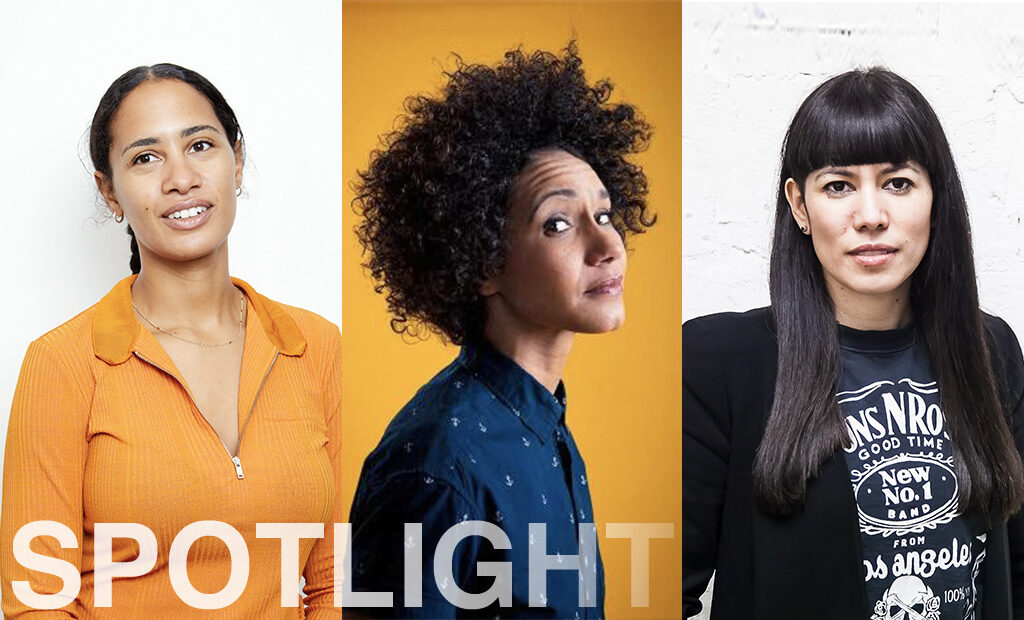
With the aim of promoting a food industry that is sustainable and diverse, The Upcoming is launching a new Spotlight series, a monthly feature to give space to people, often unsung, who are changing things for hospitality.
At the start of Black History Month, in the midst of a pandemic which has devastated minority communities and in the wake of global protests sparked by the death of George Floyd, the urgency of addressing racial inequality in the UK could hardly be more transparent. However, the discrimination, cultural erasure and appropriation that have become standard practice in the hospitality sector rarely make the headlines, leaving progress up to the work of individuals. Individuals like chef and author Zoe Adjonyoh, who last June teamed up with media consultant Frankie Reddin and academic Dr Anna Sulan Masing to create Black Book, a platform advocating for black and non-white professionals within the industry. We spoke to the three founders about their initiative, the need to address the knock-on effects of Britain’s white colonial past, why supporters of the cause should know when to speak and when to step away, and how their initiative can give black and non-white voices the space they need to succeed in an industry in which they have long been invisible.
What was it that spurred you to create Black Book? Was there any specific turning point or was it a slow-burn initiative which you feel had been a long time coming?
Zoe Adjonyoh: The platform came into fruition due to an obvious lack of representation and radical spaces within the UK for black and non-white people working within food. Through my travels to the US and specifically New York, I found that the UK lacked collegiate representation seen in platforms and collectives such as Black Food Folks, Radical Exchange and Equity at the Table. To be in spaces curated by black people for black people to be supported, network and connect at all levels of the industry is my experience of the radical and collegiate black communities in food and beverage in the states, and the wider variety of platforms for diverse representation for a career in the states was the prime motivation for my impending move to New York. The absence of any such network in the UK left me frustrated and so I imagined what good representation and community would look like and the idea for Black Book was born back in late 2018. The vision was so large I needed to enlist a team who shared my concerns, shared in the idea for a solution and shared in the bold vision to de-colonise the food industry worldwide, and without delay I approached Anna and Frankie.
How does the UK hospitality industry compare to the US in terms of representation? Do you feel there are platforms and opportunities for people of colour in the US which simply don’t exist in this country?
Anna Susan Maling: As Zoe has mentioned, the US has more spaces for diverse voices: there are people more ready to listen, to be vocal, to address issues. It is important to understand the politics at work here in the UK to understand why this is the case. Everything happened elsewhere – colonialism happened on other lands, people were enslaved on other lands, even world wars happened (bar the blitz) on other lands. The UK does not have to face its violent history on a daily basis – the British don’t have to walk the lands where people were sold, enslaved, murdered. It is therefore very easy to not address racism and not see the centuries of damage and how that plays into structures. It also sets a tone of “other” – somewhere from over there. Therefore, casual racism gets to flourish, and the idea of structural change and creating spaces for different voices is not prioritised.
You all come from different professional backgrounds: chef/author, academia/journalism and communications. How has this shaped the approach and evolution of the project?
ASM: Diverse viewpoints, experience and perspectives are very important when building something. We have all seen different aspects of the culinary world, we have all lived in many places around the world, we all bring something to the table that challenges each other. It has made us truly collaborative. It has also allowed us to adjust as we grow – as we all have different strengths and can lead various aspects of each project, when needed.
Frankie Reddin: Our various backgrounds and in-roads also represent how food and the hospitality industry are vehicles for many people to express and explore the world we live in. Stereotypically, “industry” has always been quite monolithic in its job description – you’re either a restaurateur, a chef or a waiter. Via Black Book and the variety amongst just the three of us, we will shed a fraction of light on what careers can look like within this global industry.
What are your main target areas and how are donations helping to provide recognition and support for black and non-white professionals in the hospitality industry?
ASM: There are two aspects within the charitable arm of Black Book. First, it is education; we have run a series of talks that look at decolonising the food industry, and this was hugely important to all black and non-white as well as white people – there is a lot of learning and sharing of experience. We want to continue these discussions, through a podcast, but we need to pay our panelists – their expertise is of value. There will continue to be various ways in which we want to expand on this educational side of things, from talks to masterclass and workshops and having this as accessible as possible is hugely important.
ZA: The other aspect is that we would like to assist with fledgeling businesses. Help them to build a brand through developing marketing strategies, business plans and PR. So the fund will help those businesses who are just beginning and do not have the fund to pay for this themselves.
What kind of response have you had from your talks so far? Have there been any particular stories from people in the industry which have surprised, angered or inspired you?
ASM: The support has been really great, there has been no negativity – that I have heard! – and the key point has been about not feeling alone, and how people have been made to think more deeply about their understanding of how the food world operates.
FR: We’ve had such a great response from the talks! For something that we’ve spoken about amongst ourselves for so long and at such length to be met with such applause, engagement, understanding and willingness to learn more proves the point that Black Book is filling a void that has been empty for some time in the UK.
The whole hospitality industry has taken a huge hit under Covid-19. Based on your own interactions and experience, do you believe it has been a leveller in any way, or has it hit certain communities harder than others?
ASM: You can’t talk about race without talking about class; there have been many articles and statistics that show that black and non-white people are dying, and being affected, at a higher rate than white people. This is because they are on the front line, in the service industries, working jobs that cannot be done from home. The inequality in the hospitality industry stems from the fact that on the whole, black and non-white people do not hold positions of power. So no, this has not been a leveller in any way – it has decimated communities, it has stripped any nostalgic idea of living in an equal system, which some people think the restaurant world is; it has laid bare the true vulnerability of many.
And, those that have the privilege of work, working from home, who have maybe had the space to be vocal, to be heard, to organise – such as the work that Black Book have been doing – have had to deal with daily news about how people who look like us are dying at disproportionate rates – the toll on our mental health, with news like this, cannot be underestimated.
FR: There are two different areas at play here. The hospitality industry of course has been affected greatly – whoever you are. The rate of survival for these businesses, however, has depended on their circumstances that existed before the pandemic, something which Black Book addresses by focusing on black and non-white communites – the lesser, unheard voices.
This is of course not going to be a simple fix, but what are the most crucial steps the hospitality industry needs to take to better enable equality and elevate black and non-white voices?
ZA: This starts with the question of leadership and who are the decision-makers… without changes at this level everything else becomes virtue signalling and tokenistic – systemic problems require systemic solutions.
There seems to be a faux-progressive tendency of featuring black and non-white chefs on various platforms rather than giving them their own space to tell their stories; Zoe points out that simply giving chefs “seven minutes to showcase a dish” is harmful in that it removes it from its cultural context. How do you hope your initiative might increase visibility and encourage real commitment to diversity?
ASM: The sheer extent of diverse people that we have managed to showcase in our talks, and in the upcoming BHM events, will show our audience how many people working in the food industry are black and non-white. And hopefully it will challenge people in how they think food and drink is supposed to be. I really hope that it inspires young people thinking about joining the industry into doing so – they will see others that look like them and think they have a place to be, and to be a success.
Which do you think currently poses a bigger threat to the food culture of minority communities: discrimination or cultural appropriation? Or both in equal measure?
ASM: Cultural appropriation happens because of discrimination. If there were more Thai people in mainstream media, or reaping awards, or being valued etc, cooking Thai food, then a white boy who went on holiday to Thailand and wanted to come back and make a business cooking Pad Thai wouldn’t be an issue – but currently what is valued is the interpretation of white people, over those from minority backgrounds. Cultural appropriation is about power.
FR: In my opinion discrimination poses a bigger threat as it is also a wider societal issue which ultimately dictates our behaviours and perspectives in smaller areas such as industries like hospitality. Discrimation manifests itself in many different ways in every part of our lives. One of the mains ways in which it shows itself in hospitality is through cultural appropriation.
What would your key advice be to high-profile chefs or culinary professionals who want to advocate for change without speaking for their fellow chefs?
ASM: Correctly speak about the food that they are influenced by, do the research into the background of the ingredients they work with, platform diverse people in the industry – AND THEN STEP AWAY. If you have been asked to speak on a panel, or be interviewed for an article – check who else is speaking and step away if there isn’t enough diversity; “oh this sounds like an interesting article topic, you know who would be really interesting to hear from… XYZ” is a really good sentence to keep in your back pocket. Give space.
What are your next steps and how are you hoping to grow the project?
FR: We’re about to host our second series of events celebrating Black History Month, which will take place every Tuesday throughout October. There’ll be a full day of workshops, masterclasses, cook-a-longs and discussions that explore the four pillars of Black Book in meaningful and dynamic ways. You can see the full line up and grab tickets here. We’ve also signed our first client within the representation arm of Black Book – the wonderful, Elainea Emmott – who is a chef and photographer and we’re supporting her PR. Her website is here. We’ll be launching our Crowdfunder campaign at the end of the year that will act as a springboard for our mentorship programme launching in 2021. Plus there’s talks of Black Book memberships, podcasts and global outposts… you’ll have to sign up to our newsletter
Rosamund Kelby
Black Book presents: Black History Month 2020 is taking place every Tuesday throughout October. For further information or to book visit here.
Spotlight is a monthly series of The Upcoming promoting a food industry that is sustainable and diverse by giving space to unsung people who are changing things for hospitality.



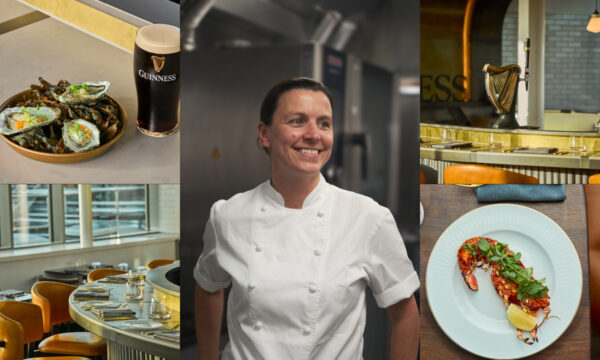

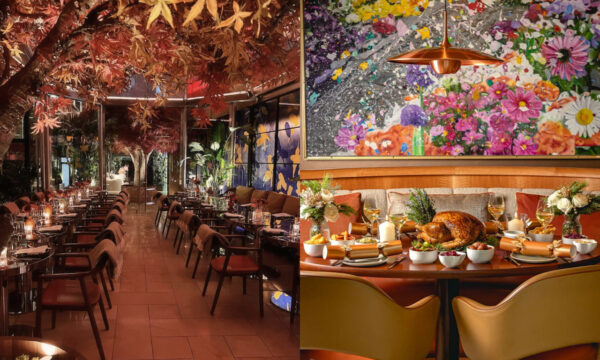

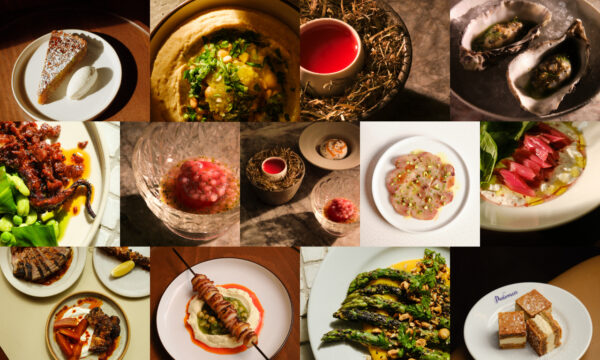
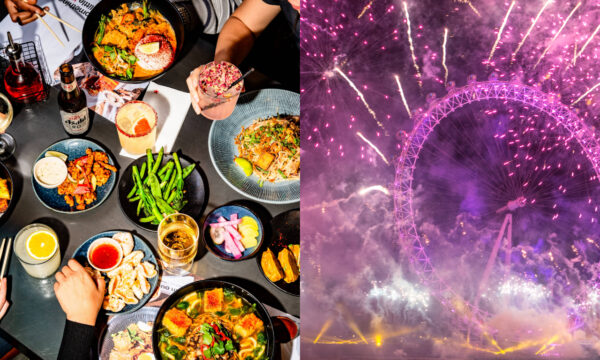
















Facebook
Twitter
Instagram
YouTube
RSS